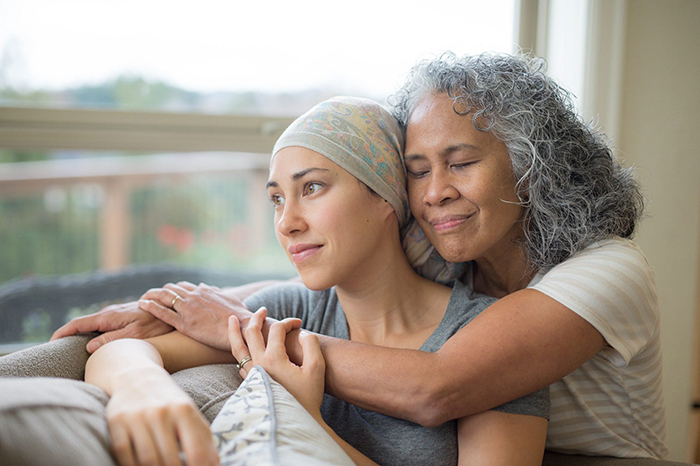Take Care of Yourself
It’s hard to build healthy, meaningful relationships when you feel tired or run down. That’s why the first step in boosting your social wellness is to take care of yourself. Be sure you:
Eat Healthy
Proper nutrition is the cornerstone of a healthy lifestyle. And instead of following the latest fad diet, get back to the basics with meals and snacks that include lots of fresh fruits and veggies, whole grains, healthy dairy and plenty of protein. Keep in mind all your protein doesn’t need to come from animals. Reach for nuts, beans, legumes or eggs for a well-rounded diet. Skip foods that are high in empty calories, sugar and saturated fats.
Exercise
The Centers for Disease Control and Prevention (CDC) recommends that all adults age 18-64 get at least 150 minutes of moderate-intensity exercise each week, along with two days of weight-strengthening exercises.
Make time to head outdoors for a walk or run around the block or swim at a local community pool. Find something you enjoy and make exercise a habit. After all, regular physical activity can boost your energy, strengthen your muscles, boost brainpower and improve your cardiovascular health.
Make Time for You
Self-care is more than a buzzword: It’s critical you take care of yourself first, so you can take care of others. Make room in your busy schedule for your favorite activities, whether that’s a weekly massage, a favorite show or reading a book. When you spend time doing the things you love, you’ll be better able to support others and nurture your relationships.
Disconnect
Today’s technology has put the answers to our most burning questions right at our fingertips. And social media has enabled us to connect with friends and family members around the country and even the globe. But, all that time staring at a screen can take away from relationships with your family, friends, and people in your community.
It can also sometimes create feelings of isolation, anxiety, and depression and eat into your productivity, which means you have less time to do the things you enjoy.
Instead of being a slave to your screen, set boundaries. Pledge to check social media only two or three times a day and keep your phone out of reach. After a few days, you’ll be surprised at how little you’ve missed.
Learn Time-Management Skills
Time management is a great way to manage stress and build healthy relationships with others. After all, when you’re not thinking about the to-do list that’s a mile long, you can better focus on your relationships and be present in the moment.
If you struggle with too much on your list, consider these “tried and true” time management tips:
- Delegate tasks that others can complete
- Just say no – when you’re feeling overloaded, let others know. Tell them you can’t take on any more tasks right now, but ask them to check back in a day or two.
- Prioritize tasks by deadlines
- Write down all tasks to help stay focused
Communicate
Open and respectful communication is the pillar that supports friendships. You can communicate effectively with your loved ones and friends by:
Sharing Feelings
Your support network is key to helping you through tough times. Let others know how you’re feeling or if something has upset you. Being honest about your feelings, instead of a quick “I’m fine,” can help you build meaningful relationships.
Be Empathetic
A healthy relationship is a two-way street. Give friends and family members your undivided attention and approach their problems, concerns, and successes with empathy. Listen carefully to what they’re saying and ask how you can help instead of offering unsolicited advice.
Set Boundaries
Our social wellness isn’t measured by how many friends we have, but by meaningful connections and healthy relationships. Remember, a true friend is willing to listen to and support you, no matter what. Avoid abusive, violent or toxic people. Set boundaries with individuals that make you feel bad about yourself, and limit your interaction with negative friends, family members or neighbors.
Teach Your Children About Healthy Relationships
The first place your children will learn about healthy relationships is in your home. Nurture positive relationships with your children so they know the impact and value of feeling loved and appreciated, and are ready to build similar relationships with their friends and loved ones.
Let your children know you love them, offering plenty of praise and support. And when praising them, be specific. Instead of saying “Good job on your report card,” try saying “I’m so proud of how hard you worked in math. Your study habits and attention in class helped you pull your grade up.” Offer praise in times of failure, too. After all, we learn as much from our failures as we do from our successes.
Find New Ways to Connect
Deepen bonds with old friends and branch out to make new ones by:
- Going for a walk together or exploring a new hiking trail
- Joining a group that focuses on a favorite hobby, such as photography, painting or reading
- Participating in community events
- Signing up for a new class together
- Trying a new restaurant
- Volunteering in the community




